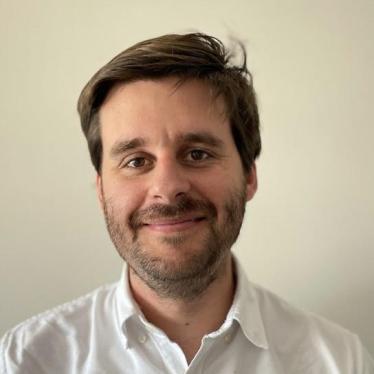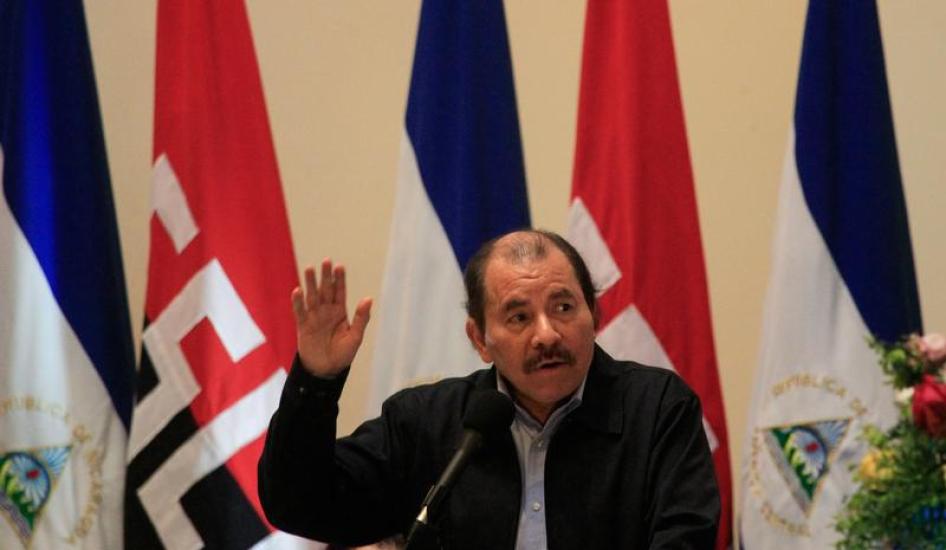President Daniel Ortega managed to impose his will and end protests in Nicaragua through a show of terrifying force. As protesters built barricades across the country, what began as a crackdown on demonstrators took an even darker turn. Police and pro-government armed gangs have arbitrarily detained, kidnapped and disappeared dozens of people.
In the 1980s, the world coined the legal term “enforced disappearance” for cases in which authorities deprive people of liberty and refuse to acknowledge their whereabouts—or even their arrest. The legal definition was created partly in response to the brutal military dictatorships that imposed terror in Chile and Argentina through massive government-sponsored kidnappings.
Determined to prevent enforced disappearances and to combat impunity for such crimes, governments established an absolute prohibition on this crime. Yet that is exactly what is happening now in Daniel Ortega’s Nicaragua.
Fortunately, a clear majority of the hemisphere’s governments are unwilling to tolerate these abuses: on August 2, the Permanent Council of the Organization of American States (OAS) approved a resolution to create a working group to oversee the situation in Nicaragua. It is a landmark move. For the first time in its history, the OAS has approved the creation of an observation committee, despite the opposition of the abusive government.
The OAS should ensure that the working group can rigorously monitor the human rights situation in Nicaragua and prevent Ortega’s government from using enforced disappearance and other aberrant crimes to perpetuate its own power.
There are many cases of people abducted by pro-government armed gangs who later resurfaced in police holding cells. One student told Human Rights Watch that armed men in black forced him into a truck as he was walking to the grocery store in Managua. They held him for eight days, blindfolded, with his hands and feet tied. They eventually took him before a camera, he said, threatening to kill him unless he confessed to acts of vandalism. Days later—in the middle of the night—they handed him over to authorities at El Chipote—the police holding cells in Managua.
The authorities did not take him before a judge or allow him to see a lawyer. His mother repeatedly asked the El Chipote authorities if he was being held there, but they denied it. After a week in El Chipote, the student was released.
In at least 50 cases, the detainees have been accused of “terrorism.” On July 13, at the Managua airport, police detained the leader of the farmers' movement, Medardo Mairena. Four days after that, at a closed hearing, prosecutors charged him with a range of crimes, including “terrorism,” “organized crime,” and “murder.” His lawyer was not allowed at the hearing. Mairena’s family and lawyer could not see him for several weeks and did not know, until July 26, where he was being held.
The Nicaraguan ambassador to the OAS, Luis Ramírez, complained that the proposal to create the working group was an “interventionist political maneuver.” And after the resolution was approved, Nicaraguan Foreign Minister Denis Moncada accused the OAS of being a “Ministry of Colonies” and said that his government was the victim of a "media campaign aimed at lying and distorting the truth."
A few days earlier, Ortega gave an interview to Fox News, denying that his government was working with armed gangs. But testimony from victims, their families, and witnesses, as well as several credible videos and photos, reveals that the one distorting the truth is, in reality, Ortega.
Among the highest priorities of the newly formed working group should be to stop the disappearances and arbitrary detention in the country. To that end, it should demand permission from the government to visit the prisons and detention centers where dozens of opponents remain imprisoned, as well as permission for human rights organizations and lawyers to attend the judicial hearings for the accused. It should also insist on the immediate dismantling of the pro-government armed gangs that have participated in these and other abuses and establish a reliable way to verify that this happens.
Foreign Minister Moncada said his government “will not allow any working group [of the OAS] on its territory.” However, when confronted with concerted and firm multilateral pressure, it is very likely that Ortega will give way. When the protests began, the regime rejected two requests from the Inter-American Commission on Human Rights (IACHR) to visit the country. But it finally agreed due to diplomatic pressure.
Thanks to IACHR visits to the country, in which it documented serious abuses—such as extrajudicial executions, torture and arbitrary detentions—the world knows the true scope of the repression. Ortega’s government responded by saying that the IACHR had manipulated the investigation.
The working group should also ensure that these crimes, for which at least 317 people have lost their lives and more than 2,000 have been injured, do not remain unpunished. It should urge Nicaragua to create a special unit that—acting together with the Interdisciplinary Group of Independent Experts of the IACHR established in July—will oversee investigating the most atrocious crimes that have occurred in the context of the protests. These should include extrajudicial executions, enforced disappearances, and torture, as well as killings of police and government supporters.
In 2017, the OAS played an important role in exposing the systematic violations of human rights under the regime of Nicolás Maduro in Venezuela. However, it never went any further because of the lack of votes and the strong opposition from the Maduro government.
As Maduro has been consolidating his repressive political system, many have begun to wonder if the OAS is capable of confronting authoritarian regimes.
Now, with the working group for Nicaragua, the OAS has a way to verify compliance with the democratic and human rights obligations of one of its members. This instrument offers the OAS a new opportunity to protect Nicaraguans and to help prevent the emergence of despotic practices by governments in the region. For this to happen, it is essential for the working group to exercise its powers forcefully and to actively defend itself against the foreseeable attacks of authoritarian rulers.
--
Jose Miguel Vivanco is Americas director at Human Rights Watch and Juan Pappier is an Americas researcher at Human Rights Watch.










